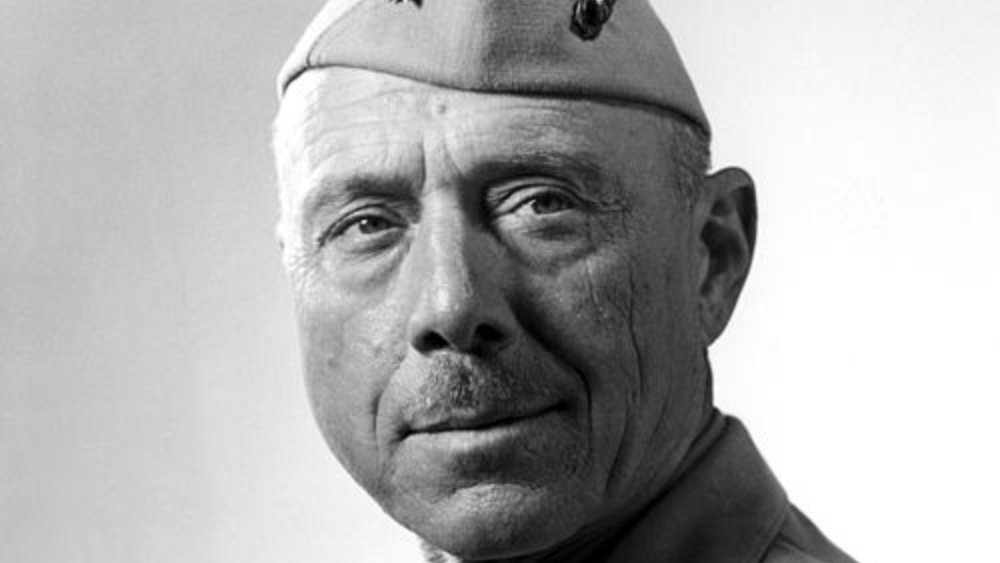William Henry Rupertus was not just a Marine—he was a warrior, a leader, and a man whose impact on the United States Marine Corps (USMC) continues to be felt today. Born on November 14, 1889, and serving until his passing on March 25, 1945, Rupertus played a pivotal role in shaping Marine Corps traditions, most notably as the author of the USMC Rifleman’s Creed. But his story is far greater than a few influential lines—it is one of resilience, leadership, and an unyielding commitment to duty.
Early Life and Military Beginnings
Born in Washington, D.C., William Henry Rupertus developed an early passion for military service. He pursued a commission in the United States Marine Corps, earning his place as a second lieutenant in 1913. Like many young officers at the time, Rupertus quickly learned that life as a Marine demanded discipline, adaptability, and an unwavering commitment to excellence.
His early career took him through a variety of assignments, including serving on naval vessels and participating in expeditionary duty. As the world teetered on the brink of war in the early 20th century, Rupertus sharpened his leadership skills, preparing for the challenges that lay ahead.
World War II and Leadership of the 1st Marine Division
As World War II erupted, Rupertus emerged as a critical figure in the Pacific Theater. By 1943, he was given command of the 1st Marine Division, one of the most celebrated units in Marine Corps history. The division had already carved out a reputation for ferocity and tenacity in the grueling Guadalcanal campaign, and Rupertus was determined to build on that legacy.
One of his most defining moments came during the Battle of Peleliu in September 1944. Rupertus, confident in the ability of his Marines, believed the battle would be won swiftly. However, the island’s brutal terrain and the fierce resistance of the Japanese defenders made Peleliu one of the most harrowing engagements of the Pacific War. The Marines fought relentlessly, suffering heavy casualties before finally securing the island after more than two months of brutal combat.
Throughout the campaign, Rupertus demonstrated both tactical expertise and deep concern for his men. His leadership was not just about strategy but also about instilling the fighting spirit that made the Marine Corps legendary. Though some criticized the battle’s cost in lives, there is no doubt that Rupertus commanded with the resolve expected of a Marine general.
The Creation of the Rifleman’s Creed
While his battlefield leadership was extraordinary, Rupertus’ most enduring legacy is one that every Marine knows by heart: the Rifleman’s Creed.
Shortly after the attack on Pearl Harbor, Rupertus, then serving as the Commanding General of the Marine Corps Schools at Quantico, recognized the need to instill a deeper sense of discipline and connection between Marines and their weapons. He penned what would become one of the most iconic pieces of Marine Corps doctrine—the Rifleman’s Creed.
The creed begins:
“This is my rifle. There are many like it, but this one is mine.”
These words are more than just a pledge; they encapsulate the essence of the Marine Corps’ fighting philosophy. Every Marine, regardless of rank or assignment, is fundamentally a rifleman. The creed underscores that the rifle is an extension of the warrior, a vital tool for survival and victory.
Rupertus’ words have resonated through generations, serving as a foundational piece of Marine Corps training. To this day, every recruit memorizes and internalizes the creed, reciting it with the same conviction as those who stormed the beaches of the Pacific decades ago.
A Life Cut Short
Despite his many accomplishments, Rupertus’ story ended too soon. On March 25, 1945, just months before the end of World War II, he passed away from a heart attack. He never saw the final Allied victory, nor did he witness the lasting influence of his words and leadership.
Though gone, Rupertus’ contributions live on. The 1st Marine Division continued to distinguish itself in Korea, Vietnam, and beyond, embodying the tenacity he helped instill. And the Rifleman’s Creed remains a cherished part of Marine Corps tradition, recited by recruits at boot camp and remembered by Marines for a lifetime.
Honoring Rupertus’ Legacy
William Henry Rupertus was more than a general—he was a symbol of the Marine Corps’ fighting spirit. His ability to lead men through some of the most grueling battles in history, his foresight in shaping the Marine ethos, and his unwavering belief in the power of discipline and training cemented his place in military history.
Today, when a young Marine stands at attention and recites the Rifleman’s Creed, they are not just repeating words. They are honoring a tradition, a commitment, and a leader who believed that excellence in combat starts with the unbreakable bond between a Marine and their weapon.
William Henry Rupertus may have left this world in 1945, but his legacy—etched into the very fabric of the Marine Corps—will endure for generations to come.










